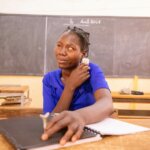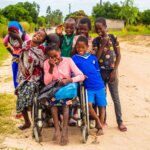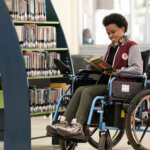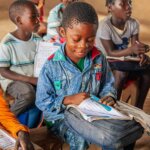- Inclusive Education
On the launch of UNESCO’s 2023 Global Education Monitoring report, Nafisa Baboo, Light for the World’s expert on Inclusive Education, examines opportunities and challenges for learners with disabilities.
Harnessing technologies to make learning materials accessible can ensure students with disabilities are included in education — but targeted funding is essential to advance existing progress.
The 2023 GEM Report on technology and education, released July 26, explores the role of technology in the classroom and widening divisions as it rapidly evolves.
With the theme A tool on whose terms? the report analyses challenges to technology use, including access, equity and inclusion. It recognises the importance of using technology to level the playing field but also the risk of widening the gap between those with existing access to technology and those without.
When technology providers and publishers comply with global accessibility standards, more opportunities for accessible technologies will be created. Nearly nine out of 10 (87%) adults said that accessible technology devices were replacing traditional assistive tools most or all the time, the report found.
However, challenges for learners with disabilities remain. These include insufficient availability of, and access to, educational technology and a lack of specialised teacher training. The stigma of using assistive technologies, which makes disabilities more visible, was also highlighted.
Nafisa Baboo, Light for the World’s expert on Inclusive Education, was among the GEM Report’s Group of Friends, advisors who provided feedback and recommendations during the report drafting.
“Technology is an enabler and can promote access and improved learning outcomes for people with disabilities. But we must be wary of the potentially dehumanising effects of technology. It can never replace the connection that supports learning and wellbeing that comes from children being together or the mentorship of a teacher,” says Nafisa.
“I know from personal experience how technology can be a game changer for people with disabilities.
“Unfortunately, many children around the world still do not have the opportunity to read. Accessible technology opens a host of possibilities and the chance for children to gain knowledge and understand a world beyond their own.
Open-use, accessible technology can support learners with disabilities, but cannot replace the human connection that influences education and learning. Digital technologies must support and enhance teacher-led education to nurture a more inclusive educational experience.”
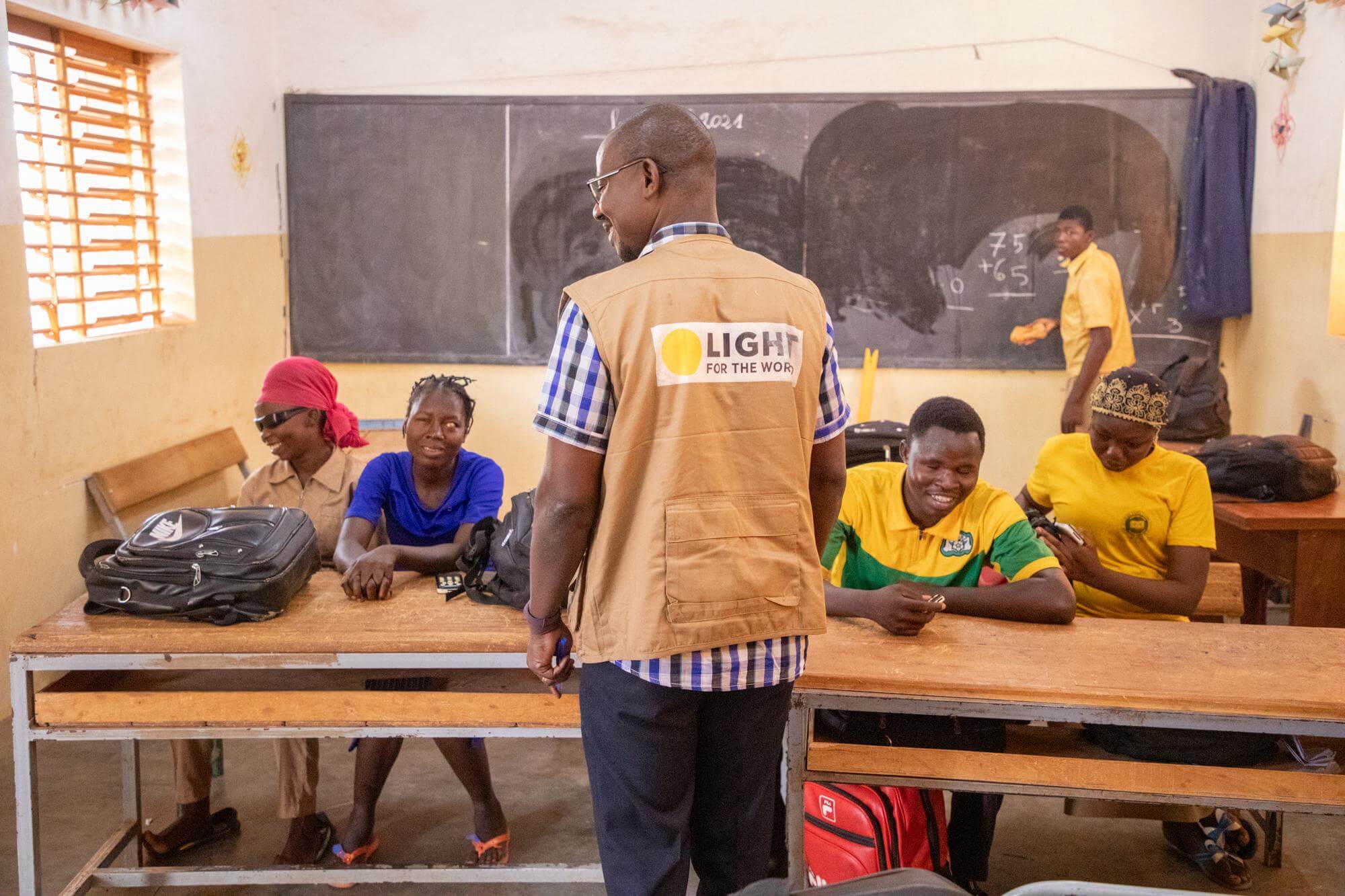
The GEM Report stressed educational technology needs to be widely available, to ensure it not only benefits already privileged learners.
“We must prioritise technology to support the continuation of learning in humanitarian crises and inclusion of students with disabilities,” says Nafisa.
“That includes ensuring resources like websites, documents and textbooks comply with global accessibility standards and that technology is designed to reflect the diverse needs, experiences and socio-cultural contexts of learners.
“To ensure no one is left behind, we need targeted funding for expert organisations to promote and test accessible technology. And to develop evidence on what does and doesn’t work in different settings to promote an inclusive and equitable education system for all.”
This year marks the 10th anniversary of the Marrakesh Treaty, seeking to end a “book famine” for people unable to access standard print materials. The Treaty allows for copyright laws to be relaxed, enabling people who are blind, visually impaired or with a print disability to access more books and print materials in accessible formats.
In sub-Saharan Africa, fewer than 1% of books are in accessible format. In Burkina Faso, most students with visual impairments lack access to textbooks, with learning materials manually produced by volunteers.
Inspired by the opportunities offered by the Treaty, Light for the World has been working to improve access to learning materials for Burkinabé students.
Working alongside partners the National Union of Burkinabe Associations for the Promotion of the Blind and Visually Impaired (UN-ABPAM), DAISY Consortium and Benetech, Light for the World facilitated the digitialisation of more than 300 books in French and Moore.
The project saw hundreds of students receive laptops, tablets, Orbit readers and Evo E10 Daisy recorder/players. The readers and recorder/players allow students with visual impairments to access the same textbooks as their peers in real-time. A current pilot study has provided students with disabilities with smartphones and Bluetooth keyboards.
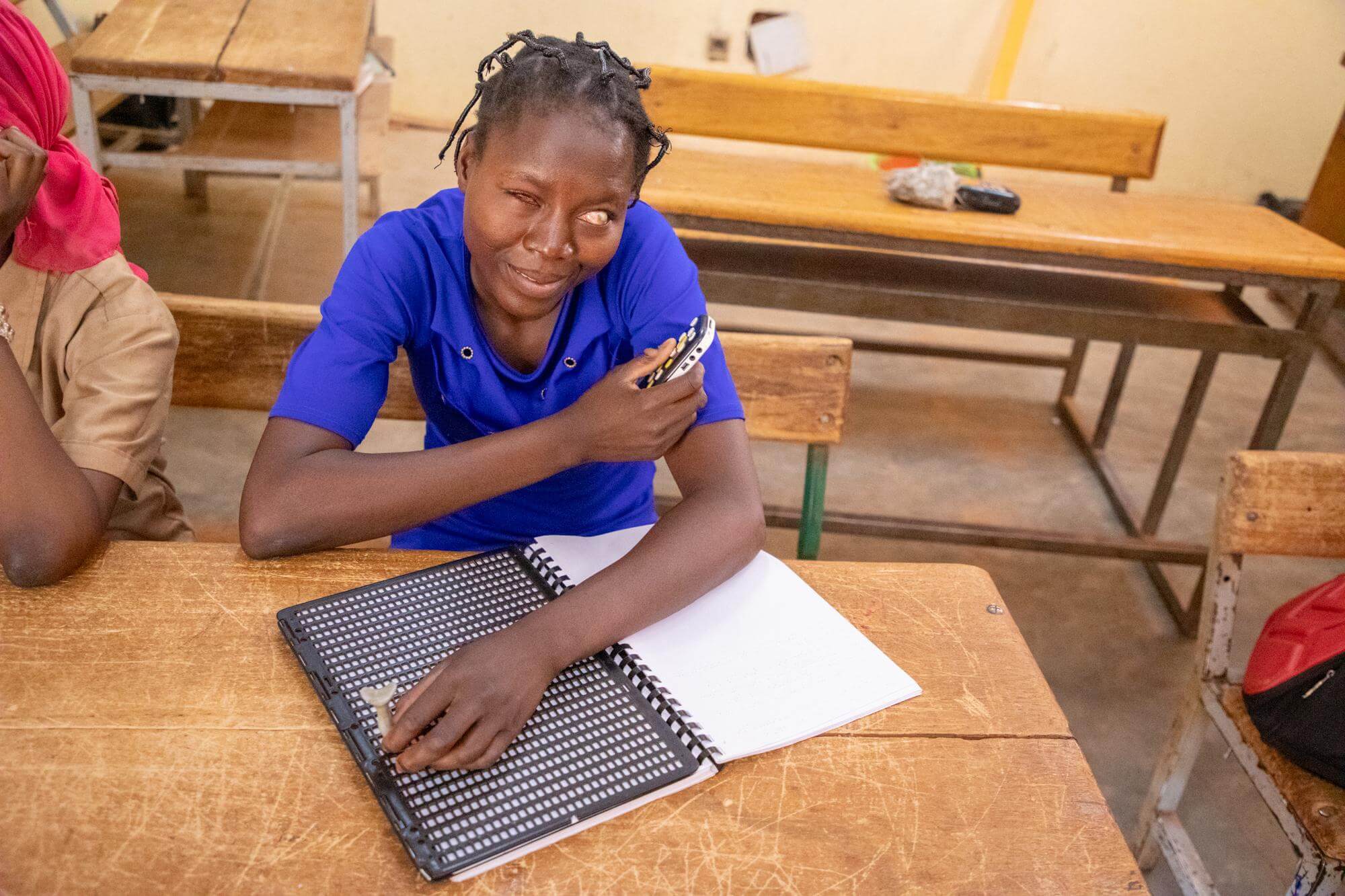
The next phase of the project, part of Light for the World’s One Class For All initiative, will create free access to Bookshare for Burkinabé students. Bookshare is the largest online library for people with print disabilities, with over 1.1 million titles that can be read using specialised or standard devices, such as computers, tablets and smartphones.
Light for the World is hoping to pilot a future study, with partners, focused on an ICT Competency Framework for teachers. The project, which would address curriculum assessment, pedagogy and teacher professional learning, would be the first of its kind in Burkina Faso.
“For effective investment in assistive technologies, we need to strengthen the capacity and understanding of governments to procure technologies that are universally accessible and will leave no learner behind,” says Nafisa.
Every child has the right to inclusive, quality education. Yet 258 million children do not go to school and tens of millions of children with disabilities are being left behind.
To find out more about Light for the World’s work promoting Inclusive Education, visit: www.light-for-the-world.org/our-work/disability-inclusion/education
